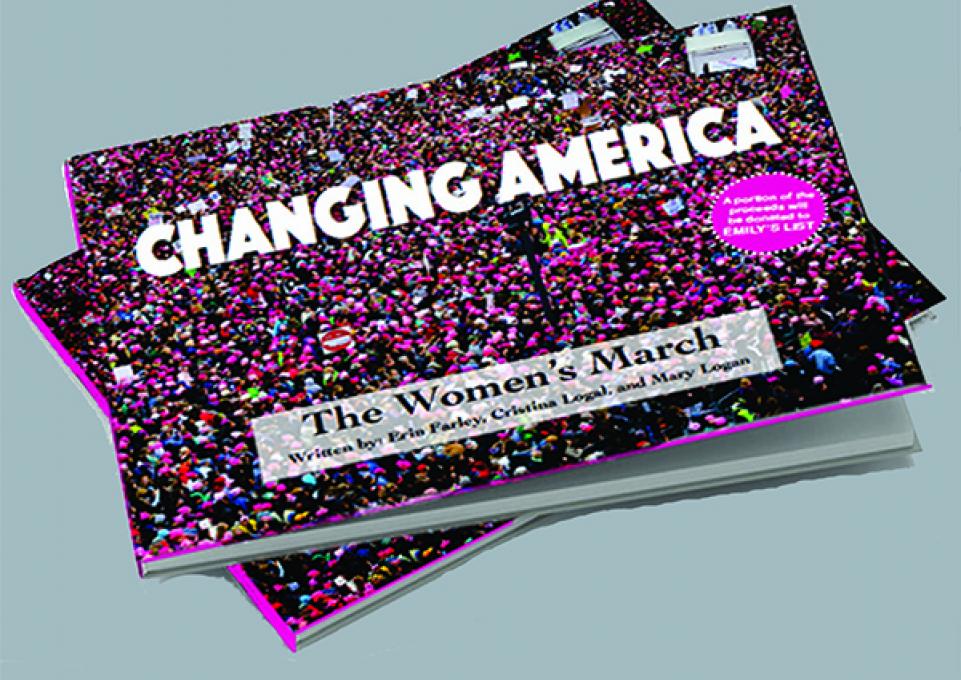
Three Western New York women participated in a nationwide movement last year to protest the newly installed presidential administration and advocate legislation regarding human rights. The trio was so compelled by their experience that they decided to capture the movement’s significance more permanently.
The authors of Changing America: The Women’s March, Cristina Logal, ’07; Erin Farley, ’08; and Mary Logan, will host a book launch and open conversation on Friday, November 16, at 6:00 p.m. in the Jacqueline Vito LoRusso Alumni and Visitor Center on the Buffalo State College campus. The event is free and open to the public; free parking will be available in Lots G-20 and G-22.
“We were energized by the events surrounding the 2016 presidential election, and we felt we had to be a part of the Women’s March in Washington, D.C.,” said Logal, an adjunct instructor in Buffalo State’s Modern and Classical Languages Department.
The march was the largest one-day demonstration in United States history, with more than 4 million people protesting in cities across America on January 21, 2017, the day after the Presidential Inauguration.
“It was beyond electric to see all those people, their signs, and their passion. We felt like we had to preserve that moment in time,” Logal said.
On their drive back from D.C. to Buffalo, Logal and her co-authors decided to write a book.
“Initially we just wanted to compile a collection of pictures from marches held around the country and include famous quotes,” she said. “Soon into the process, we realized that our intended audience needed information on how to tackle the issues we face under the current administration.”
Their book does feature photos from demonstrations across the country, but it also offers guidance for readers on addressing women’s parity in politics—especially in today’s sociopolitical climate, Logan said.
“Women’s rights and equality are being threatened and undermined every day from state, local, and national offices across this country,” she said. “The Women’s March was the beginning of a movement to change this dynamic, and there is more work to be done.”
Post-election activism and civic engagement go hand in hand, according to Logal. She hopes the book will inspire readers to run for office, participate in political campaigns, or become advocates on specific issues.
“We can’t move forward or change without the awareness of what led up to this movement,” Logal said. “We hope this book encourages other women to feel empowered, to become involved in government, to write a book, to protest, or anything else they can do to advance the agenda of equality and inclusiveness.”
